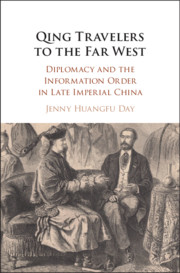Summary
In preparation for the renewal of the Treaty of Tianjin, a set of unequal agreements which had concluded the Second Opium War, the Qing dispatched its first diplomatic mission to visit the major powers: United States, Britain, France, Germany, and Russia. This chapter explores how Zhi-gang, the mission’s Manchu leader, conceptualized and documented Western powers as political rivals. Drawing concepts from various schools of traditional thought, Zhi-gang established his own basis for evaluating commensurability between Chinese and Western practices in fields such as technology, religion, astronomy, and governance, concluding that the Qing’s Western rivals resembled the hegemons from the Warring States in fourth century BCE. The chapter traces changes in the reception of Zhi-gang’s travel account in the three decades after his return, and demonstrates that his messages were edited, reinterpreted, and repackaged to fit the discourse on reform in the 1890s.

